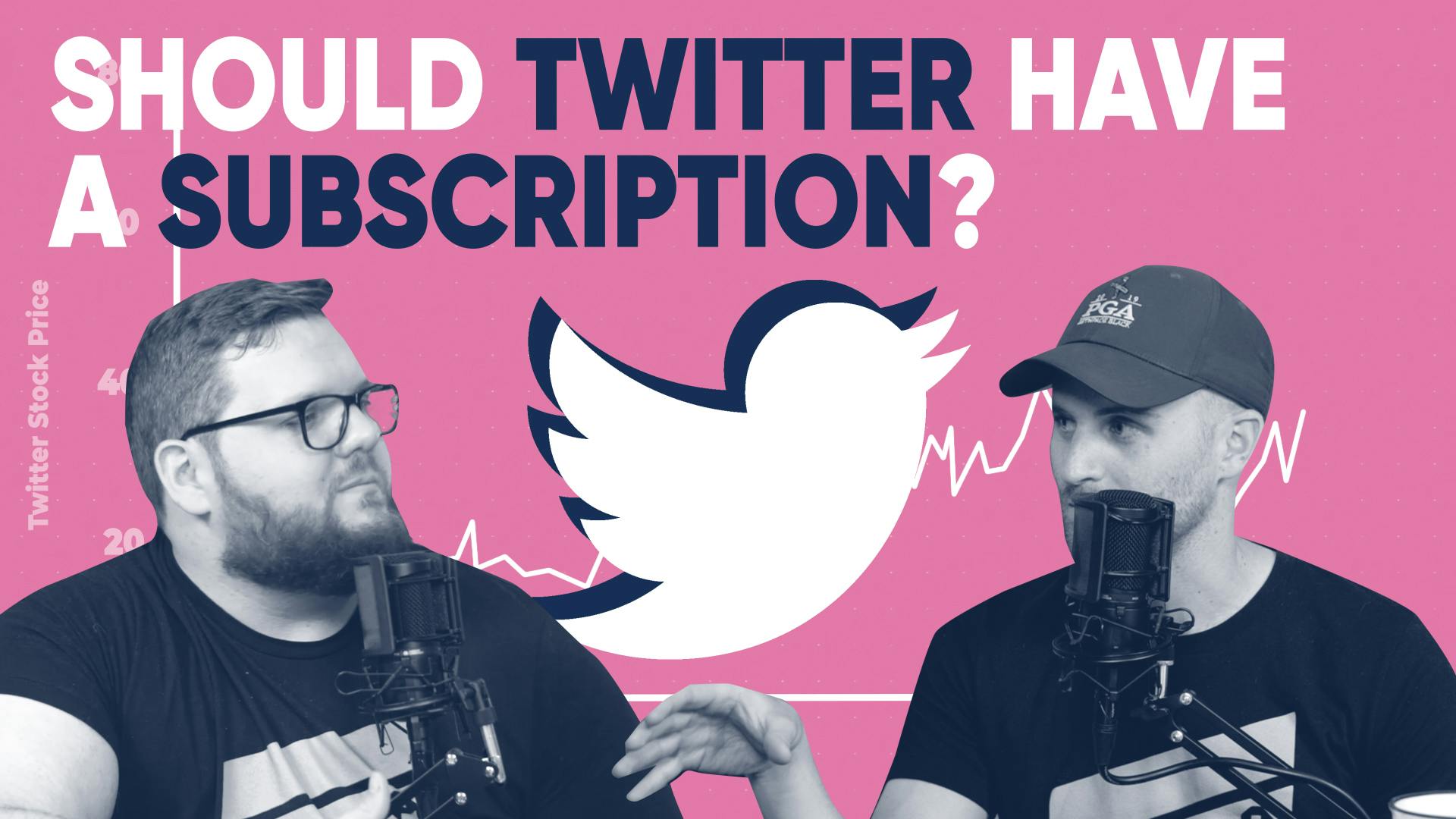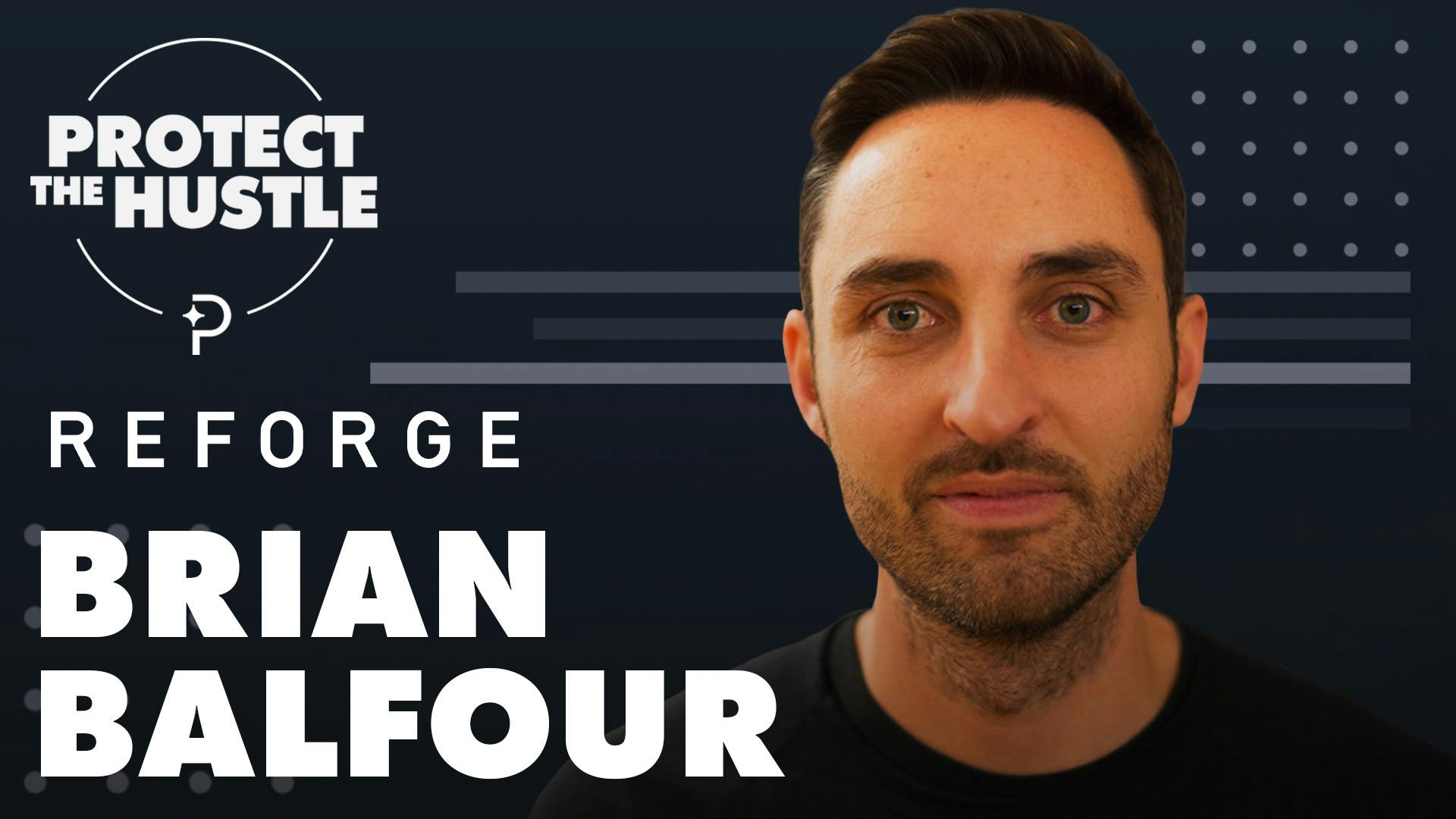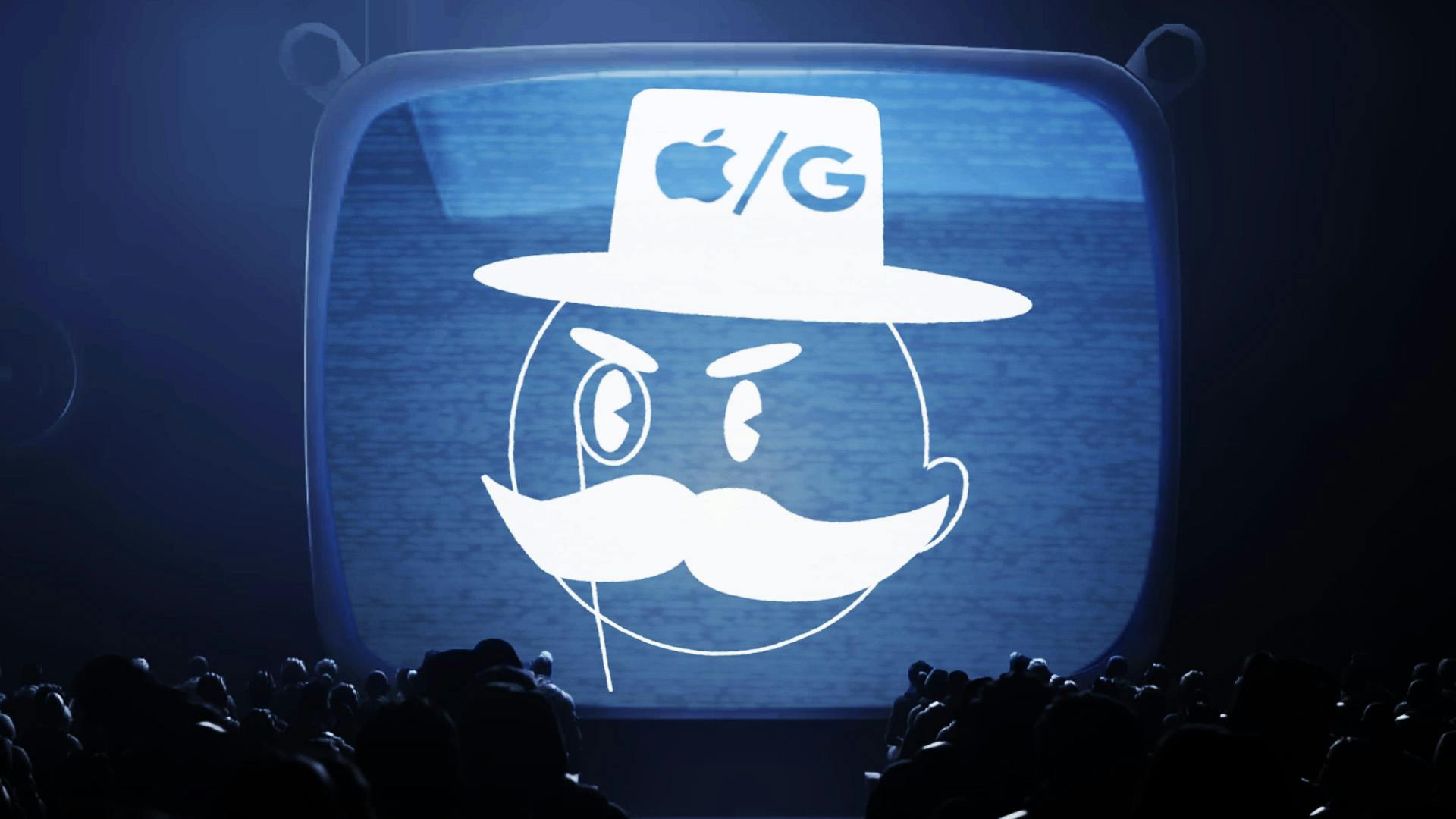
The Rising Impact of Brand
This episode might reference ProfitWell and ProfitWell Recur, which following the acquisition by Paddle is now Paddle Studios. Some information may be out of date.
Originally published: April 26th, 2018
A great brand absolutely increases the willingness to pay and retention amongst customers. As the data suggests, brand just might be your new secret weapon.
But first, if you like this kind of content and want to learn more, subscribe to get in the know when we release new episodes.

Brand Drives Higher Willingness to Pay
We coded respondents perception of a company’s brand before measuring their willingness to pay.
Those customers who perceived a company’s brand positively had between a 16% and 41% higher willingness to pay than the median.
Those on the negative perception side had 15-33% lower willingness to pay. Neutral respondents were willing to pay about 6-15% less than the median. Based on this data, brand not only drives higher willingness to pay, but also can very much detract from your ability to sell to your customers at the level necessary to succeed.
Interestingly enough when we start to break this data out across ARPU and industry, the narrative remains the same.
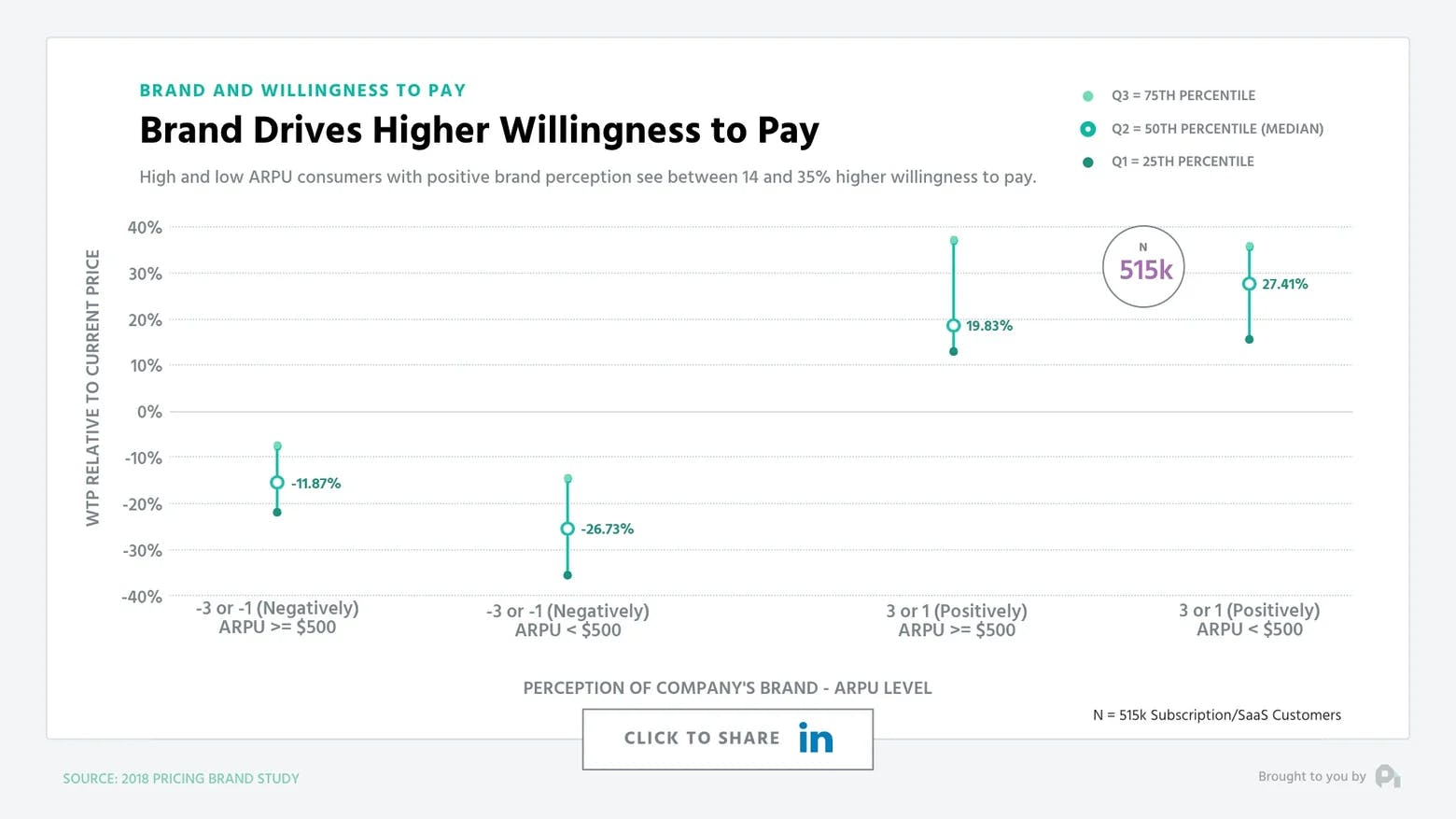
High and low ARPU consumers with positive brand perception see between 14 and 35% higher willingness to pay.
B2B and B2C breakouts are eerily similar, both on the positive and negative sides of perception.
Brand Drives Higher Retention
Digging even further, retention tells a similar story, as those folks with a positive perception of brand have roughly 11-18% better net retention and those customers with poor perceptions of brand seeing about 12-15% worse retention.
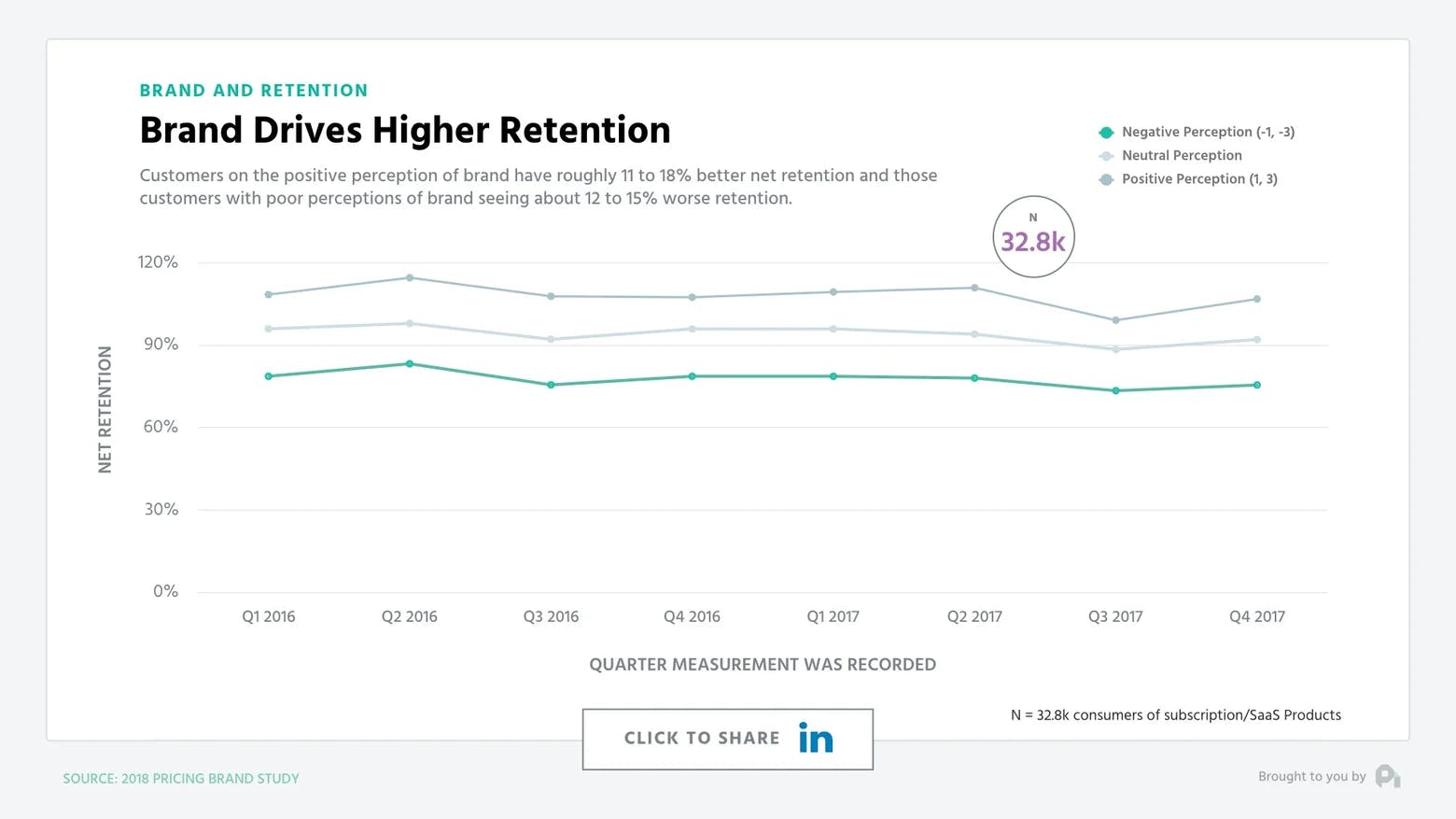
Brand and other intangibles continue to grow in importance
The bottom line is - as more and more features get built, competition remains on the rise, and the function aspect of software becomes less differentiable, these formerly intangible pieces of your product - brand, design, and even support - will continue to become more and more important.
Want to learn more? Check out our recent episode: Localization Benchmarks and subscribe to the show to get new episodes.

1
00:00:00,240 --> 00:00:03,660
You've got the questions
and we have the data.
2
00:00:03,680 --> 00:00:07,360
Each week, we dive deep on benchmarks
of the subscription economy that
3
00:00:07,360 --> 00:00:09,475
you just can't get anywhere
4
00:00:10,555 --> 00:00:10,795
else.
5
00:00:10,795 --> 00:00:13,975
This is the ProfitWell Report.
6
00:00:15,435 --> 00:00:18,700
Hi. My name is Lydia Newton,
and I'm the CMO of binder.
7
00:00:18,700 --> 00:00:21,980
We help our customers all over
the world to build and maintain
8
00:00:21,980 --> 00:00:23,660
a consistent brand,
9
00:00:23,660 --> 00:00:26,865
and we all know a strong
brand when we see it.
10
00:00:27,145 --> 00:00:28,665
But my question is,
11
00:00:28,665 --> 00:00:32,025
to what extent does this affect
the purchasing decision and
12
00:00:32,025 --> 00:00:33,500
willingness to pay?
13
00:00:33,500 --> 00:00:34,540
Great question, Lydia.
14
00:00:34,540 --> 00:00:35,580
Time and time again,
15
00:00:35,580 --> 00:00:38,220
founders and marketers think
that brand is just something
16
00:00:38,220 --> 00:00:40,975
fluffy for b to c companies
in the world of fashion.
17
00:00:40,975 --> 00:00:43,935
You know, with customer acquisition
cost continuing to increase and
18
00:00:43,935 --> 00:00:45,855
willingness to pay
continuing to drop,
19
00:00:45,855 --> 00:00:49,070
data suggests that brand just
might be your new secret weapon.
20
00:00:49,070 --> 00:00:50,190
To answer Lydia's question,
21
00:00:50,190 --> 00:00:52,990
we looked at nearly three
thousand different companies in
22
00:00:52,990 --> 00:00:55,630
over a million different
consumer transactions.
23
00:00:55,630 --> 00:00:57,225
Here's what we found.
24
00:00:57,225 --> 00:00:59,385
First up, to get a direct
answer out of the way,
25
00:00:59,385 --> 00:01:01,945
a great brand absolutely
increases the willingness to
26
00:01:01,945 --> 00:01:03,980
pay and retention
amongst customers.
27
00:01:03,980 --> 00:01:05,100
We coded respondents'
28
00:01:05,100 --> 00:01:07,420
perception of a company's
brand before measuring their
29
00:01:07,420 --> 00:01:08,460
willingness to pay,
30
00:01:08,460 --> 00:01:11,660
and those consumers who had a
positive perception of a brand
31
00:01:11,660 --> 00:01:14,185
actually had an increased
willingness to pay of sixteen
32
00:01:14,185 --> 00:01:16,425
to forty one percent
than the median.
33
00:01:16,425 --> 00:01:19,145
Those on the negative
perception side had fifteen to
34
00:01:19,145 --> 00:01:21,430
thirty three percent
lower willingness to pay,
35
00:01:21,430 --> 00:01:24,070
and neutral respondents were
willing to pay about six to
36
00:01:24,070 --> 00:01:25,590
fifteen percent less.
37
00:01:25,590 --> 00:01:26,630
Based on this data,
38
00:01:26,630 --> 00:01:29,190
brand not only drives
higher willingness to pay,
39
00:01:29,190 --> 00:01:32,565
but also can very much detract
from your ability to sell to
40
00:01:32,565 --> 00:01:35,925
your customers at the level
that is necessary for success.
41
00:01:35,925 --> 00:01:39,365
High and low ARPU consumers
with positive brand perception
42
00:01:39,365 --> 00:01:42,950
see between fourteen and thirty five
percent higher willingness to pay.
43
00:01:42,950 --> 00:01:46,150
B to b and b to c breakouts
are eerily similar both on the
44
00:01:46,150 --> 00:01:48,875
positive and negative
sides of perception.
45
00:01:48,875 --> 00:01:49,915
Thinking even further,
46
00:01:49,915 --> 00:01:53,035
retention tells a similar story
as those folks on the positive
47
00:01:53,035 --> 00:01:55,835
perception of brand have
roughly eleven to eighteen
48
00:01:55,835 --> 00:01:57,500
percent higher retention,
49
00:01:57,500 --> 00:01:59,660
while those on the negative
are seeing twelve to fifteen
50
00:01:59,660 --> 00:02:01,340
percent lower retention.
51
00:02:01,340 --> 00:02:04,620
The bottom line is as more
and more features get built,
52
00:02:04,620 --> 00:02:07,985
competition remains on the
rise and the function aspect of
53
00:02:07,985 --> 00:02:10,365
software becomes
less differentiable,
54
00:02:10,385 --> 00:02:14,200
these formerly intangible pieces of
building a product, brand, design,
55
00:02:14,200 --> 00:02:18,200
and even support will continue to
become more and more important.
56
00:02:18,200 --> 00:02:19,320
Well, that's all for now.
57
00:02:19,320 --> 00:02:20,120
If you have a question,
58
00:02:20,120 --> 00:02:23,175
shoot me an email or video
to p c at profitable dot com.
59
00:02:23,175 --> 00:02:25,575
And let's also thank Lydia
for sparking this research by
60
00:02:25,575 --> 00:02:27,735
clicking on the link below
to give her a shout out.
61
00:02:27,735 --> 00:02:32,239
We'll We'll see you next week.



